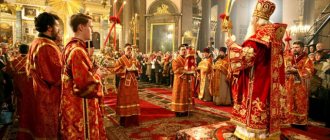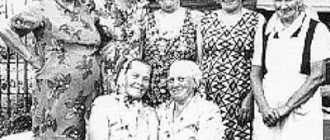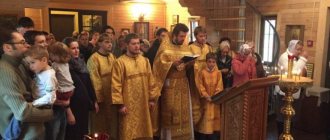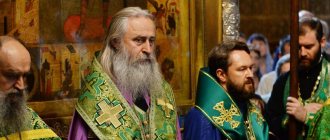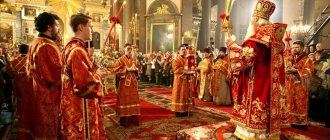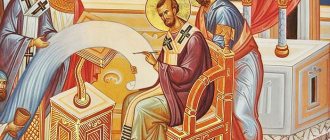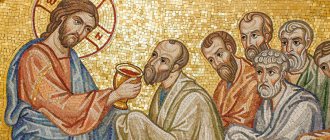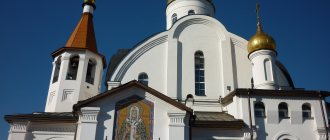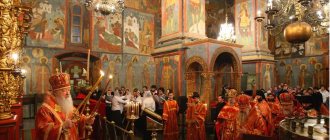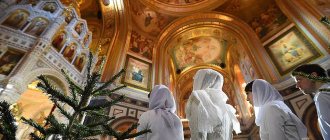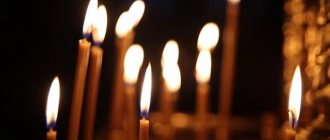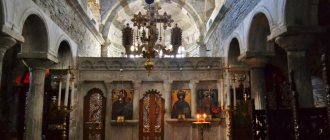Photos from open sources
Christmas is the main Christian holiday. The Christmas church service always begins in all Orthodox churches on Christmas Eve, which is celebrated on January 6th. At midnight on Christmas Day the all-night vigil takes place, and closer to morning the liturgy begins. Of course, every Orthodox person must not only celebrate Christmas correctly, but also perform a full service.
How is church service held at Christmas?
Christmas celebrations, contrary to popular belief, do not start directly on January 6th. Preparations for it are carried out 40 days before the events. It is then that the Orthodox cleanse their body and soul with the help of a preparatory and rather strict fast. By its nature, the Nativity Fast is more likely to be of an ascetic type than a liturgical one.
In mid-November, there is still no mention of Christmas in the chants. But five days later - from November 20, the first lines begin to appear in the irmos of the canon -
Christ is born, praise!
The actual celebration of Christmas begins on December 20th. Liturgies are conducted like the main ones. At the end of December - on the 24th, on the so-called Eternal Day, several services are held: hours; evening; Divine Liturgy to Saint Basil the Great.
- The clock is a service that is present in almost all church holiday themes. The sacred meaning is in notifying the people and remembering the event.
- The evening service begins the holiday, there are five stichera on the Lord calling, eight texts from the holy book.
- The Liturgy of St. Basil the Great was previously intended for Baptism and Confirmation.
Now it rather performs a final function rather than a utilitarian one. After the end of this service, the clergyman places a lighted candle in the middle of the church and chants the kontakion and troparion, signaling the imminent Christmas.
Christmas Night Service
Dear brothers and sisters, Christmas Eve (January 6th) and the holiday service (January 6th to 7th) are very significant events for believers. Today we will talk about the Christmas Night Service.
We are waiting for the birth of Jesus Christ
The fast that precedes the Christmas holiday ends, we await the birth of Jesus Christ. We are waiting for the “first star” that announced the Messiah to the world. What is she, this “first star”? Someone believes that the “first star” is some very bright celestial body that appeared in the sky and led the wise men to the manger of the newborn Baby.
In the Orthodox Church, the symbol of the “first star” is a large candle, which is brought to the center of the temple after the morning service on January 6th. The troparion to the Nativity is sung before it. At the end of the service, when you come home, you can eat. Since the fast has not yet ended, they eat only the juices and prepare for the festive night service.
All-night vigil
Of course, everyone decides for themselves whether they need to go to a night service or stay at home, and how important it is for a person to meet God. If you nevertheless decide to go to church and, together with the entire Orthodox world, rejoice at the birth of the Savior, make sure that you have enough strength to withstand the night service.
Each parish holds services differently. In some churches, services are performed over two days, and there are churches where two services are served at once; the evening service passes after midnight into the Divine Liturgy.
There is probably no need to tell you how beautiful Christmas services are. To understand this fully, you just need to come, see, hear, and take part in them yourself. After all, Christmas Eve is not only a memory of the events of that time when the Lord took on human flesh and came to our world to save people.
Eternity itself opens up before us, and everything we know takes on new meaning. Time stops, and we become involved in another reality, that other World, which is now open to us. Our current, hectic and dusty life seems to be falling apart into molecules. It is difficult and sometimes impossible to explain. And only in the temple, having touched the great sacrament, do you understand how great the Creator’s love is for us sinners.
Holy night
The Christmas night service, the holy night, is an amazing sacrament, an important event in the life of each of us. This is a meeting that you need to try not to oversleep. And not only figuratively, but also literally. Try to find time during the day to rest so that you can fully immerse yourself in worship.
Many of us come to the temple for a festive night service, paying tribute to traditions, fashion, or “so that people do not judge.” In this case, a person is deprived of understanding what is happening, what they are singing about, what they are reading about. And he is present, as they say, for show. And service is not a joy, but a punishment. And my legs suddenly start to hurt, my back, and other parts of my body. Accordingly, thoughts are not about God, but about how soon everything will end. So think what joy about the birth of Christ we will take away from the temple.
How to properly prepare for the night service?
As a rule, we associate the word “holiday” with a rich feast. If this concerns secular holidays, the questions disappear by themselves. But Orthodox holidays are a completely different topic. And here the paramount ones are prayer, fasting, confession, communion, participation in services, and so on.
To understand the meaning of the Christmas service, you need to think about who Jesus Christ is, and why He came into our world in the first place. Someone wise said: “God became man so that we could become gods.” If this is understood correctly, then our kitten life immediately takes on a different meaning. And all these little things, such as a festive table, some new clothes, entertainment events, banquets, etc., are nothing more than dust and husks.
We have been given the opportunity to become gods by the grace of the Creator. The One who created all things, who commands the universe, who created man and all earthly creatures, He came to our world as a small, defenseless Baby, clothed in flesh and blood. And for what? Yes, in order to save our dying world, each of us, by His Great Love! To open the doors to the Heavenly House for us! To remove from us that original sin! What other words and arguments do we need to jump up and run to meet the Savior?
But in order to understand all this, to properly prepare for the night service, you need to read. Ask the priest for spiritual literature that will help you understand the texts read at the service. Then everything will become clear, you will follow the progress of the service, and the confusion in your head will disappear.
Probably each of us attended some lectures, seminars, or just work meetings. If we are on topic, time passes unnoticed, we understand everything that is being said from the podium. But if there is no interest or understanding of the topic, we sit on pins and needles, it would all be over soon. That's how it is with church services.
I would like to remind you of something else. At the night Christmas service it is customary to take communion in order to meet the Infant of God in purity. And since there are a lot of people in churches on Christmas, confess in advance, having agreed with the priest. It would be wrong if, instead of following the progress of the service, you worry about whether or not you will have time to confess.
Many churches are already starting to dress up in anticipation of the holiday. Very soon, believers will begin to flock to the Christmas night service in thin streams to become a full-flowing river. The Son of God will come into our world to open a different World for each of us. Don’t sleep through this miracle, it is the happiness of being involved in God.
Happy holiday, dear brothers and sisters! Merry Christmas!
Christmas Eve
Funeral
consists of several stages. This includes parts:
- the first is similar to the part of Matins, when the six psalms are read, then the troparia to the Lord are repeated;
- the second - which in its essence is repentance to the Lord for sins;
- the third - includes psalms with glorification and praise to the Lord God, reminiscent of the part of Matins when the canon is chanted.
The three parts of the all-night vigil begin on January 6 and end on the 7th.
How to manage everything?
Many baptized people, in the hustle and bustle of everyday affairs, rarely visit church, but they always strive to get to it at least on the main and most important days - Christmas, Easter, Trinity, Annunciation, Dormition, Baptism, Exaltation, Candlemas, etc.
If with all other holidays it is clear on what day to plan to go to church, then on the eve of the Nativity of Christ, those who rarely visit churches have a question: when do they go to church on Christmas? January 6 is a permanent holiday. According to the secular calendar, this is an ordinary working day. How to plan it? For many, every year is a solution to a difficult puzzle. You can’t eat until the first star, that is, before six in the evening. On this day, you need to have time to prepare 12 ritual dishes, work at your main workplace and visit the temple. It’s indecent to pop into church for a minute. If you came, it means you must defend the entire service. The Lord usually supports and gives more strength on this day than usual. The main thing is not to panic ahead of time.
If it's a working day, you can do this. On one of the long New Year's weekends, during the pre-Christmas period, you need to visit church, calmly confess, partake of the Holy Gifts and ask the priest for his blessing to attend the most important Christmas services.
On Christmas Eve, everyone waits for the star to rise, eats nothing, prepares 12 ritual dishes, reads or listens to prayers.
The Christmas holiday, a day off, falls on January 7th according to the calendar, and everyone is looking for the star heralding the coming of the Savior into the world in the sky on the evening of the 6th. There is some strange paradox and some inconvenience in this.
First hour
Photos from open sources
The first hour of the Christmas service marks the beginning of the celebration. The first hour is usually devoted to the thoughts and feelings of the Orthodox who came to the temple. This action consists of reading psalms, troparia, as well as several prayers to the Almighty.
Visiting temples by unchurched Christians
Unchurched people, when they go to church on Christmas, treat this event with particular reverence. Many even deny themselves participation in the Christian holiday if the day before they desecrated themselves with savory food or their health condition prescribes a ban on visiting the Abode of the Holy Spirit. Many are stopped by the fear of being judged because they do not know the text of prayers or do not know how to behave correctly in church. This is a whole science. And on a major holiday, churches are filled with a variety of people, and there is no fear that the most zealous and fanatical believers will drive them away or condemn them. It’s no secret that on ordinary days, when there are few people in church, this happens.
Liturgy of St. Basil the Great
The Liturgy of St. Basil the Great is celebrated in churches only ten times throughout the year. It is connected with Vespers; Vespers is served first, and only then the Liturgy itself. At its core, the liturgy is an indicator that Christ sacrifices himself again and again for all people.
The liturgy consists of Eucharistic texts, which are read after the singing of the Creed. Unlike the prayers that are present in other liturgies, more extensive texts are used for St. Basil the Great.
Are services long in Orthodox churches?
On holidays, even the smallest churches and chapels open their doors to believers. Services, with short breaks, go one after another. They sometimes start very early, before seven in the morning, and end after midnight. There are a lot of people. It is very difficult for an unaccustomed person to spend the whole day in church. Even churchgoers do not always defend all services. But the Byzantine tradition assumed 24-hour service to God, without breaks. For a long time in Rus', the rites of liturgies were preserved, lasting 8-10 hours. Gradually, the readings of prayers, canons and Holy Scripture have been significantly reduced, and now even the longest service does not last longer than three to five hours. After it there is a break, followed by the next one, according to the rule.
Vespers
The custom of performing Vespers before the Nativity of Christ is perhaps the oldest. Information has been preserved in sacred texts that it was carried out already in the 4th century. The ninth hour is celebrated, the entire pamerium is read.
Meaning:
- the first is about the creation of the world;
- the second is the prophecy of Balaam;
- the third is the prophecy of Micah;
- fourth, the prophecies of Isaiah;
- fifth, the prophecy of Baruch;
- sixth, the prophecies of Daniel;
- the seventh and eighth are the prophecies of Issaiah about the birth of the Child and Emmanuel from the Virgin. The Apostle and the Gospel are read, there is a litany.
The priest lights a candle and takes it to the middle of the room. The troparion and kontakion are pronounced. The candle means that the star appeared in Bethlehem.
Christmas Dress Colors
There is a certain system and hierarchy in the annual circle of the most important Christian holidays. All of them are divided into the Lord's, that is, most related to Jesus Christ, and the Theotokos, dedicated to his Most Pure Mother. The Lord's are the most important.
Priests' robes, made of yellow brocade, decorated with gold embroidery and braid, are associated with power and might and symbolize God. Orthodox Christians, when they go to church on Christmas Day from January 6 to 7, note that the priests' festive vestments are painted in the colors of the Virgin Mary, symbolizing purity and purity - white and blue. Although this is the Lord's holiday. He is the second most important. The first one is Easter. The Sunday of Christ is the main holiday, and Christmas is the largest in terms of the number of days during which holiday services are held.
The longest holiday
The church and the entire Orthodox people prepare for great holidays long ago, making sacrifices through fasting, cleansing the soul with repentance and prayers. A joyful event also does not end in one day. After the most significant dates, the obligatory fasts on Wednesdays and Fridays are canceled, and entertainment events are allowed. It is no coincidence that weddings are always planned for this time.
The twelve holidays also differ in the number of days on which the great event is celebrated. The Nativity of Jesus Christ is the longest of all. Each celebration is divided into three stages - pre-celebration, post-celebration and giving. All together it continues for almost two weeks.
The pre-Christmas celebration lasts five days. People go to church on Christmas Day on the eve of the Great Event, on the 6th, on the 7th, and throughout the next week. After-feast lasts from one to eight days, depending on the proximity to fasting or the next holiday, and ends with giving.
This is the most solemn service. It recalls all the most significant circumstances of the celebrated event.
